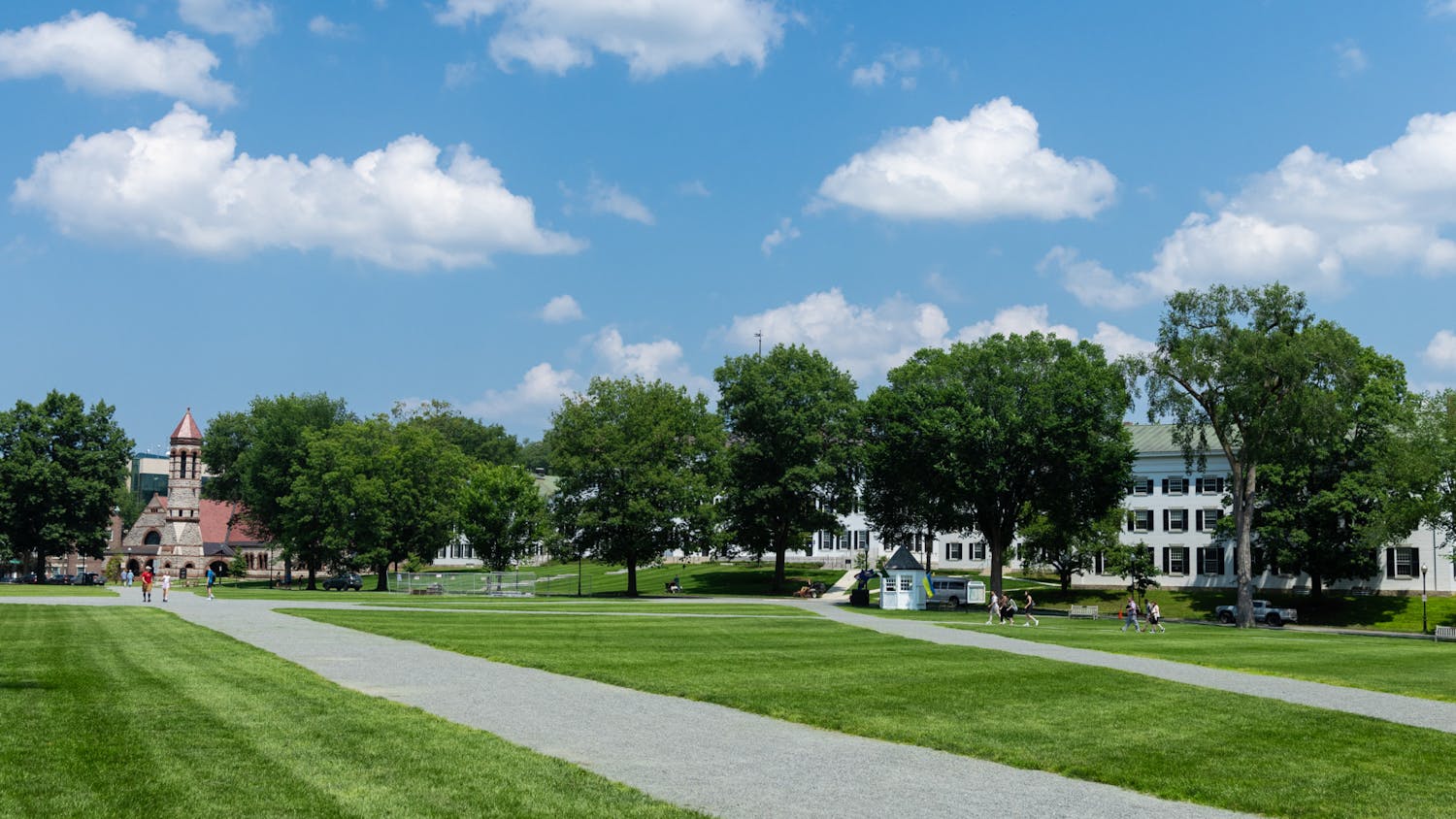Following in the footsteps of politicians, writers and television personalities, this year's Commencement speaker, Liberian President Ellen Johnson-Sirleaf, is the latest in a long line of distinguished and diverse honorees. Speakers from the worlds of politics, journalism, academia and the arts have all traveled to the College to deliver a Commencement address in recent history.
Johnson-Sirleaf is not the first head of state to speak at Commencement. In 1995, former United States President Bill Clinton became the first United States President to speak at Commencement since President Dwight D. Eisenhower spoke in 1953. After describing then College President James Freedman as "my good friend," Clinton focused on the importance of education in the rapidly expanding global economy and reflected on the end of the Cold War. Clinton recieved a standing ovation from the record 12,000 members of the audience. Other recent speakers hailing from the political arena include former Sen. George Mitchell, D-Maine, in 1999 and former Secretary of State Madeleine Albright in 2001. Delivered three months before 9/11, Albright's speech discussed the United States' need to cooperate with other countries to survive.
"I hope people really do look at international careers because national boundaries are very much out of date," she said in the address.
Some speakers have had a background in entertainment, including 2002 Commencement speaker Fred Rogers, known as Mr. Rogers on his television show Mr. Roger's Neighborhood. Rogers, who spoke about love, attended Dartmouth for two years in the early 1940s before transferring to Rollins College to study music.
"In the perspective of infinity, our differences our infinitesimal," he told his audience. "May we never pretend that we are not."
Nobel Peace Prize recipient Elie Wiesel, a renowned author and survivor of the Holocaust, spoke at the 2006 Commencement about the importance of lifelong learning and history's ability to mold the future. Drawing on his own memories and experiences, Wiesel called on the graduating class to be proactive.
"This century is not mine " it is yours," Wiesel said in his speech. "If there is hope, and there must be, you will shape it and you justify it."
Several speakers have generated controversy on campus. In 2007, nearly 50 professors signed a letter written by history professor Bruce Nelson protesting the choice of Secretary of the Tresasury Henry Paulson '68 as speaker because of his connection to President George W. Bush's administration.
"I was very concerned about the fact that by inviting [Paulson] to speak, in a certain sense, the College and the trustees were validating the Bush administration," Nelson told The Dartmouth at the time. "That's not a good thing to be doing, in my opinion."
Opinion writers for The Dartmouth, as well as several Dartmouth-related blogs, also criticized Paulson's selection because they believed he could not connect to students.
Members of the Dartmouth community have also questioned whether some chosen speakers were notable enough for the honor. The Dartmouth described the reception of the 2000 Commencement speaker, Shirley Ann Jackson, a physicist and president of Rensselaer Polytechnic Institute, as "lukewarm." None of the five physics professors contacted by The Dartmouth at the time knew who she was.
The College president chooses commencement speakers based on a recommendation from the Council on Honorary Degrees, which includes representatives from the College, Tuck School of Business, Thayer School of Engineering and Dartmouth Medical School.



